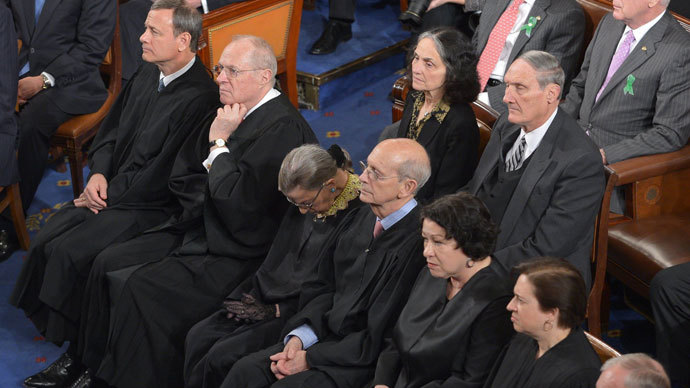Supreme Court's ability to judge technology limited, Justice Kagan admits

The judges who sit on the US Supreme Court have little knowledge of Facebook, Twitter, email, or other modern capabilities, despite society's widespread use of such technology, according to Justice Elena Kagan.
Kagan’s admission, which bubbled to the surface during a discussion with Ted Widmer - a historian and librarian at Brown University in Rhode Island - came after it was revealed that the National Security Agency has monitored the electronic communications of the very people that Kagan is charged with representing.
“The justices are not necessarily the most technologically sophisticated people,” she said Tuesday when asked about the NSA policies. “The court hasn’t really ‘gotten to’ email.”
Judges communicate with one another by writing on paper and dispatching a so-called “chambers aide” to deliver the memos. Kagan, 53, said it is the same method that justices used when she worked as law clerk for former Justice Thurgood Marshall in 1987.

Kagan was answering a question regarding the recent disclosures made by former NSA contractor Edward Snowden, who leaked classified documents that expose far-reaching government surveillance authorized by the secret Foreign Intelligence Surveillance (FISA) court - the rulings of which are not made public.
Kagan is the youngest of the presiding justices. She was appointed by US President Barack Obama in 2010 after serving as dean of Harvard Law School and Solicitor General of the United States. During her first year on the bench, Kagan said the court was asked to rule on an issue related to violent video games - something the justices were unfamiliar with.
“It was kind of hilarious,” she said, mentioning that she enjoyed playing while being careful to avoid noting which game the bitterly partisan court explored together.
Widmer, citing the international outcry that came after the NSA leaks, pressed Kagan for her opinion on whether the Supreme Court was expecting to hear technology-related cases in the near future.
“I think we’re going to have to be doing a lot of thinking about that,” she replied, adding that the judges often seek out younger clerks to assist with questions about technology. “It’s a challenge for us.”














